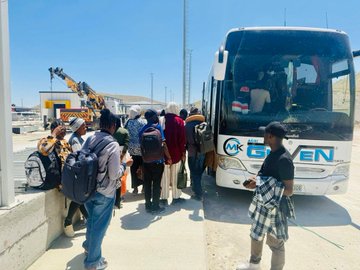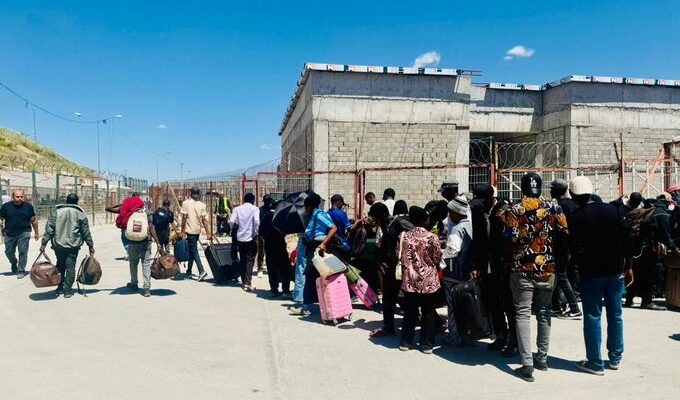As the armed conflict between Iran and Israel escalated dramatically in mid-June 2025, dozens of Ugandan students found themselves trapped in a rapidly deteriorating security situation thousands of kilometers from home. In response, the Government of Uganda launched a swift and coordinated evacuation operation, underscoring the nation’s commitment to protecting its citizens abroad and highlighting the complexities of international crisis management.
The Outbreak of Conflict and Immediate Threats
The hostilities that erupted on June 13, 2025, saw both Iran and Israel exchange missile strikes and close their airspace indefinitely, plunging the region into chaos and uncertainty. For the Ugandan students enrolled in various Iranian institutions—many on scholarship programs—the conflict transformed daily life into a struggle for survival. With cities on high alert and bombings reported in several areas, students were forced to remain indoors, cut off from regular communication and unsure of their fate.

Government Response and Diplomatic Coordination
Recognizing the urgent danger, Uganda’s Ministry of Foreign Affairs (MFA) activated its emergency evacuation protocols. Led by Permanent Secretary Vincent Waiswa Bagiire, the ministry worked in close coordination with Uganda’s embassies in Tehran and Ankara, as well as with the Turkish government and other regional partners, to facilitate the students’ safe passage out of Iran. The Turkish authorities responded swiftly, granting Ugandan evacuees temporary sanctuary and gratis (free) visas upon arrival, while the Ugandan embassy in Ankara provided accommodation, food, transportation, and emotional support.
Ambassador Nusura Tiperu, Uganda’s envoy in Ankara, played a pivotal role in receiving the students and overseeing their welfare as they awaited repatriation. “Their safety is paramount, and we are grateful for the cooperation of the Turkish government and our own leadership back home, including President Yoweri Museveni, who has given this operation top priority,” Ambassador Tiperu told local media.
The Evacuation Operation
The evacuation was executed under challenging conditions. With both Iran and Israel’s airspaces closed, traditional flight routes were unavailable, forcing the operation to rely on ground transport and complex diplomatic negotiations for border crossings and transit visas. Despite these hurdles, Ugandan officials managed to extract 48 students from Tehran, who were then safely transported to Istanbul, Turkey. By June 22, reports indicated that the students were being housed in Turkey as arrangements were finalized for their return to Uganda.

Uganda’s MFA also reached out to neighboring countries such as Azerbaijan and Jordan to secure similar visa waivers for any additional evacuees. Embassies in Saudi Arabia, the United Arab Emirates, and Qatar were put on standby to provide consular assistance should any Ugandans be rerouted through those nations.
Family Reactions and National Impact
Back in Uganda, the families of the affected students expressed profound relief and gratitude. “We were so worried after hearing about the bombings, but now that the government has stepped in, we are finally at peace,” said Sarah Nakiyemba, mother of one of the evacuees. The Ministry of Foreign Affairs established a dedicated communication channel for families seeking updates and support, further reassuring anxious relatives.
Ongoing Challenges and Lessons Learned
The evacuation highlighted both the logistical and diplomatic challenges of extracting citizens from active conflict zones. The closure of airspace, shifting battle lines, and the need for rapid international coordination all tested Uganda’s crisis response capabilities. Nonetheless, analysts have praised the operation as a testament to the power of coordinated diplomacy and the growing capacity of the Ugandan government to protect its nationals abroad.
As the students continue to await flights back to Entebbe, plans are in place to provide them with medical, psychological, and logistical support upon their return. The government’s handling of the crisis has set a precedent for future evacuations and reinforced the importance of robust diplomatic networks in an increasingly volatile world.
Conclusion
The successful evacuation of Ugandan students from war-torn Iran stands as a significant achievement for Uganda’s foreign policy and crisis management apparatus. It not only safeguarded the lives of vulnerable citizens but also demonstrated the effectiveness of swift, coordinated action in the face of international emergencies. As the situation in the Middle East remains unpredictable, Uganda’s vigilance and preparedness continue to offer reassurance to its citizens both at home and abroad.

